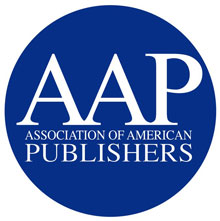August 16, 2022
AAP Files Amicus Brief in Support of Photographer Lynn Goldsmith in the Copyright Fair Use Case Andy Warhol Foundation v. Lynn Goldsmith

Yesterday, the AAP filed an amicus curiae brief with the Supreme Court of the United States in support of photographer Lynn Goldsmith in the copyright fair use case Andy Warhol Foundation v. Lynn Goldsmith. AAP’s brief explains that licensable copyright interests, including for derivative uses, are the foundation of publishing transactions in the marketplace. It also emphasizes that fair use is also an important balancing provision under the law, but that it must not swallow the rule.
As AAP’s brief explains, the Warhol Foundation asserts a bloated flavor of fair use that would make any “new meaning or message” by a downstream user a deciding factor—not only for the visual artworks that are at issue in this case, but in all instances in which a subsequent user might seek to circumvent permission from the original author, for example, changing the ending to a novel or creating a film from a book. AAP’s brief explains that divisible copyright interests and downstream markets are fundamental to copyright protection and the basis by which all kinds of formats and adaptations are licensed, including eBooks and audiobooks.
The facts of the case turn on a prominent photograph of the musician Prince, which the photographer Goldsmith licensed to Vanity Fair for a single use artist rendering in 1984, which Warhol completed, and Vanity Fair published along with attribution to Goldsmith for her underlying photograph. After Warhol’s death, the Warhol Foundation began generating revenue from 15 additional works (mainly silkscreens) that Warhol had made from the photograph without permission but had not himself exploited.
The Department of Justice has also filed in support of the photographer, noting that by licensing copies of Warhol’s works, the Warhol Foundation competes with the photographer’s own markets for both the original photograph and licensed derivatives.
Read AAP’s full amicus curiae brief here.
